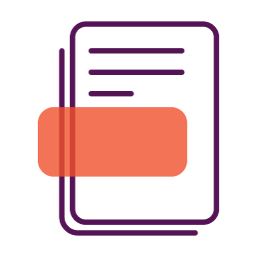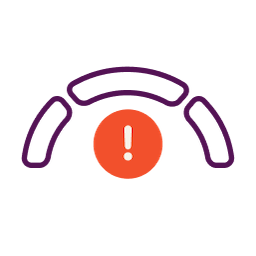There are a lot of details to take care of when you start a business: choosing your business name, getting any necessary business licenses, and perhaps even forming a business entity. Getting your Employer Identification Number (EIN) may be one of those items on your to-do list; you’ll be able to check it off when you get your EIN verification letter from the IRS.
When you do, what happens next? Here’s what you need to know about your EIN verification letter.
What is an EIN Verification Letter?
An EIN verification letter (CP 575) can refer to two things. It can either refer to the letter you get from the IRS assigning an Employer Identification Number (EIN) for your business for the first time. It can also refer to a copy of the information because you forgot or lost the EIN for your business.
Oftentimes you will just need to provide your EIN number, but there may be certain instances when you need to produce your EIN verification letter, so it is a good idea to have it stored somewhere safe and accessible.
What is an EIN?
An Employer Identification Number (EIN) is also known as a Federal Tax Identification Number (or TIN), and is used to identify a business entity. An EIN is a nine-digit number the Internal Revenue Service assigns in the following format: XX-XXXXXXX.
Think of it as the Social Security number for your business.
An EIN is free from the Internal Revenue Service. You can apply online for an EIN at IRS.gov or you can file Form SS-4. The EIN application also includes a section that explains whether your business needs an EIN.
Some business formation services will apply for an EIN when you form your LLC or corporation, and there may be a fee for that service.
Why Small Business Owners Need It
An EIN number is extremely important for a variety of processes. It is important to have this number when you are doing things like:
- Filing your business tax returns
- Opening a bank account for your business
- Applying for a business license
- Ordering from vendors
- Setting up payroll
- Applying for a business loan
- Getting a business license
- Establishing a Keogh/Solo 401(k)
While some types of businesses may not need an EIN (especially if you are self-employed as a sole proprietor), it’s usually a good idea to get one. It will help separate your business and personal finances.
You don’t need an EIN to establish business credit; in fact, your business credit reports may or may not list your business employer ID number. But when you apply for a small business loan, business credit card, or other types of financing, the lender will often request an EIN if your business has one.
If you form a business entity, you’ll often need to get an EIN. Find the best business formation resources here.
Who Needs to See Your EIN Verification
There are not many instances where you will need to show your EIN verification letter. Oftentimes you will only need to report your EIN number when it’s requested.
However, there are times you may need to provide the actual letter. These may include:
- Due diligence proceedings
- Certain loan applications
- Business licenses
- Certain vendor relationships
- Opening business bank accounts
Because you may be asked to provide your EIN confirmation letter, it’s a good idea to keep a copy handy so you can access it when needed. It’s also helpful to keep it on hand in case you want to make sure you’re providing the correct EIN when it’s requested.
How to Get Your EIN Verification Letter
When you are first assigned your EIN by the IRS you’ll get a letter confirming that. (You may see it referred to as IRS letter 147c).
A company can get an EIN number for free one of four ways.
- Complete the EIN online application form on the IRS website.
- For international companies, call the IRS directly.
- Fill out IRS form SS-4 and mail it to the IRS.
- Get it through your business formation service that requests it on behalf of your business.
Note that all businesses whose principal business, office or agency, or legal residence (in the case of an individual) is located in the United States or in one of the U.S. Territories can apply for an EIN online.
Once you complete your online application, you’ll get your EIN immediately. You’ll then be able to download, save and print your confirmation notice. Once you’ve completed the application, you will receive your EIN immediately. You can then download, save, and print your confirmation notice.
When you get your EIN verification letter, read it carefully to make sure all the information is correct, then store it in a safe place and make sure access to the EIN is limited. (It can be used to commit identity theft so just like you protect your SSN and personal information, protect your EIN.)
How to Get a Copy of Your EIN Verification Letter (If You’ve Lost It)
If you already have an EIN but have lost it, you can call the IRS at (800) 829-4933 and select EIN from the list of options. Tell the person who assisted you that you received your EIN from the Internet but have lost it. They can confirm your EIN.
If you also need a copy of the letter, contact the IRS Business and Specialty Tax Line to get the form you need to request the confirmation.
Using Your Verification Letter
You could potentially operate a business for years without any need to supply a copy of the letter that assigned your EIN.
Most of the time you will only need to provide your EIN number when it’s requested.
If you do need to use the original verification letter make sure you are only providing it to a reliable and trustworthy person/company. While EINs are a matter of public record, you should still be careful as these numbers can be used for illegal purposes.
Additional Tips for Small Business Owners (FAQs)
What’s the difference between an ITIN and an EIN?
Both are a type of tax id number but an EIN is used to identify a business entity.The IRS issues individual taxpayer identification numbers (ITINs) to individuals who are required to have a U.S. taxpayer identification number for tax filing purposes, but who aren’t eligible to obtain a Social Security number (SSN) from the Social Security Administration (SSA).
An example would be a non-resident business owner who needs to file income tax returns.
Can I use an EIN instead of an SSN?
The IRS warns that an EIN is for use in connection with business activities only. Do not use your EIN in place of your social security number (SSN).
Can I use an SSN instead of an EIN?
If your business isn’t required to get an EIN, then you’ll use your SSN to file your personal tax forms, which will include information about your business. (Most sole proprietorships, for example, report business income on Schedule C with their 1040 tax return.)
When do I need a new EIN?
Generally, businesses need a new EIN when ownership or business structure has changed.
Generally, businesses don’t need a new EIN if they change their business name, move to a new location or operate multiple businesses.
If you change your address or if you change the responsible party for the entity after you receive your EIN, you’ll use IRS Form 8822-B, Change of Address or Responsible Party – Business, to notify the IRS of the new address.
If there is a change in the legal name of your business, you’ll need to write to the IRS notifying it of the change, with the request signed by an authorized person. Partnerships or corporations also need to include the Articles of Amendment filed with the state that authorized the name change.
How do I protect my EIN?
Business id theft is a growing problem. Unfortunately, there’s no way to “lock” your EIN to prevent it from being used improperly. But It is a good idea to check your EIN number at least once a year to make sure no one is using it illegally.
But you can do two things to help protect your business:
- Monitor your business credit reports with multiple commercial credit reporting agencies. New accounts you don’t recognize could be a sign of business id theft.
- Request your tax transcript to see if there is any activity you don’t recognize.
Does an EIN make my business legit?
There are a number of steps you can take to set up your business properly for long-term success. Getting your EIN is often one of those steps.



Have at it! We'd love to hear from you and encourage a lively discussion among our users. Please help us keep our site clean and protect yourself. Refrain from posting overtly promotional content, and avoid disclosing personal information such as bank account or phone numbers.
Reviews Disclosure: The responses below are not provided or commissioned by the credit card, financing and service companies that appear on this site. Responses have not been reviewed, approved or otherwise endorsed by the credit card, financing and service companies and it is not their responsibility to ensure all posts and/or questions are answered.